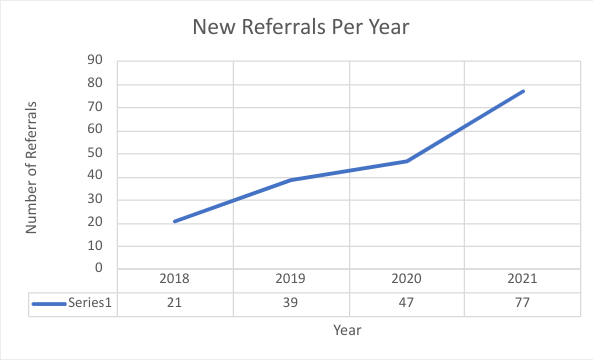Hypertension
Hypertension 2
27 - Pediatric Hypertension and Obesity in Vermont over the COVID-19 Pandemic
Sunday, April 30, 2023
3:30 PM - 6:00 PM ET
Poster Number: 27
Publication Number: 27.322
Publication Number: 27.322
Kelsey Frey, The University of Vermont Children's Hospital, Burlington, VT, United States; Sarah Twichell, Robert Larner, M.D., College of Medicine at the University of Vermont, Burlington, VT, United States

Kelsey Frey, MD (she/her/hers)
Resident
The University of Vermont Children's Hospital
Burlington, Vermont, United States
Presenting Author(s)
Background: Elevated blood pressure and obesity in childhood are associated with adult HTN and metabolic syndrome. The COVID-19 pandemic led to a drastic change in lifestyle for the majority of children in the US, and it is not yet known how these changes impacted their metabolic health. Anecdotal evidence from our center indicated rising BMI and poorer blood pressure control in many children.
Objective: Our primary objectives were to assess the association between the COVID-19 pandemic and BP control and BMI for children in Vermont and northern New York who were previously diagnosed with hypertension, and to assess the changes in referral patterns for new-diagnosis hypertension.
Design/Methods: A retrospective chart review was performed using EHR from the UVMMC pediatric nephrology clinic. We identified all patients age 0-18 years seen in clinic from March 1st 2018 through July 31st 2021 who carried a diagnosis of elevated blood pressure or hypertension. Data collection included era of evaluation (pre versus during pandemic), age at visit, height, weight, BMI, and blood pressure. Exclusion criteria included patients older than 18, or patients seen for reasons other than elevated blood pressure. Data were collected using REDCap and analyzed in Microsoft Excel.
Results: A total of 214 patients were identified with 708 total office visits. The majority of patients (53.3%) were 13 years or older, and 64% were male. There was an increase in new referrals for elevated blood pressure during the pandemic. In 2018 and 2019, 21 and 39 new referrals were made respectively, compared with 47 and 77 in 2020 and 2021. There was no significant difference in baseline blood pressure (133/67 pre versus 131/67 during for participants>13, 116/62 pre and 119/63 during for participants< 13) or BMI (31.3 pre versus 28.9 during for participants >13, 24.4 pre versus 24.2 during for patients 1-12 during). Anti-hypertensive medication use did not significantly change, with 20.1% of visits pre-pandemic requiring a new medication or increased medication compared with 20.7% of visits during pandemic.
Conclusion(s): There was no significant difference in baseline BP, BMI, or medication use during the pandemic when compared with prior to the pandemic. There was more than double the number of patients referred for elevated blood pressure during the pandemic compared with prior. This may indicate an increasing prevalence or increased identification of pediatric hypertension in the Vermont/upstate New York region related to the COVID-19 pandemic. Further investigation may be warranted to see if this trend was noted in other parts of the country.

.png)
.png)
